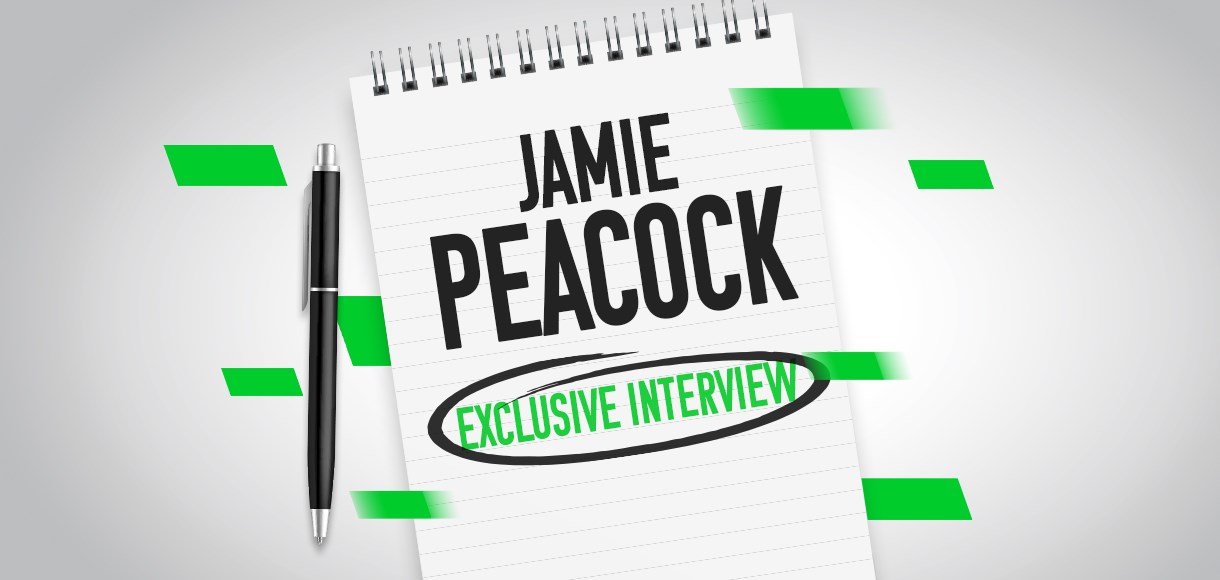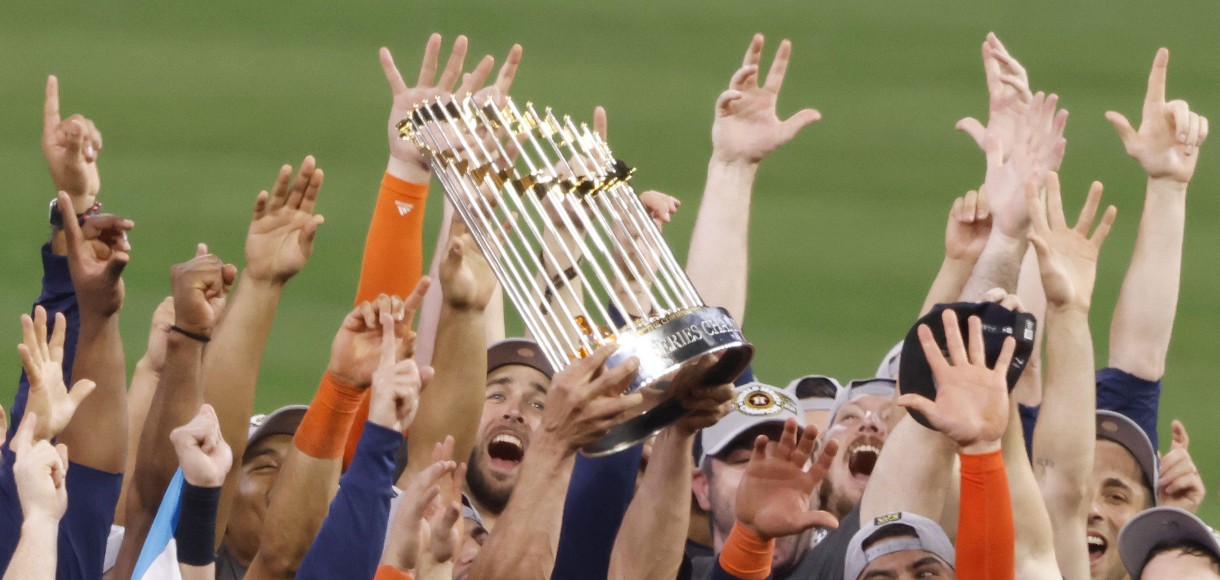Jamie Peacock: Playing in the World Cup is rugby league's pinnacle

In our exclusive interview, the most successful Super League player of all time talks about representing England on the highest stage.
Visit the Betway sportsbook for the latest in online betting.
You’re the most successful Super League player of all time, but where did playing at the World Cup rank in your career?
Even though I had that success domestically, playing in the World Cup's the pinnacle. It’s above and beyond winning Super League trophies is playing for England in the World Cup.
I feel when you play for England, you represent everybody who is associated with the game in the country, from people have helped you as a junior to your family, friends and coaches. It's a huge honour to be one of the 24 players chosen to represent your country in the World Cup.
My first World Cup was in 2000, it was new to me to play for England. I'd only been playing in the first team for two years. I just think to represent your country is just such a huge thing to do. In 2008, I captained my country down in Australia as well.
I could summarise it best that my only regret in my career is not playing in the 2013 World Cup when I had a chance to do it. Steve McNamara asked me to play and I said no. Then, when I was watching and analysing the games on the BBC, I just thought: “I’ve made a big mistake here, I should have been playing in these games.”
What did it mean to you to win Player of the Tournament in a home World Cup in 2000?
I look back at that tournament and it was probably the making of me as a player. I remember, I didn’t get picked for the first game against Australia and I just thought that if I get my chance, I’m going to give the coach no choice but to pick me again.
I was outside Sean Long, which was good for me. He was a great ball player and a great half back and I was wide-running back rower.
To win Player of the Tournament for England was just huge given all the quality players we had like Andy Farrell, Adrian Morley and Long. There were some wonderful players in there.
To come from the outside and make my name on the international stage was great, and I think that’s another great thing about the World Cup. You get some people who are unknown and might become big names on the back of performing well in the World Cup. It’s a great platform to launch your career.
Do you see any players that people might not know, who could do that this year?
I think Jack Welsby could be a player that, if England play well and go deep into the tournament, will be talked about. I watched him play in the Grand Final and thought he was outstanding in the first 20 minutes of the second half.
I think he’s got all the capabilities to make a big impression. He’s such a natural, instinctive player and he sees opportunities in games that other players don’t.
Going back to 2008 when you captained England in Australia, how much did it help you to have a familiar coaching face in Tony Smith there?
Tony understood the nuances of my game and the way I would like to lead the group as a captain. I think that commonality and familiarity between a player and a coach is important.
But equally, it can be good if you don’t know the coach. As a player you’ll want to impress him because he doesn’t know what you’re like week-to-week at club level. It can be a good motivator as a player because you really have to bring your A-game.
How different will the experience of a home World Cup be this year compared to when you played given how the sport has progressed?
I think there’ll be a huge difference. It’s 22 years later and there has been a lot of hard work put in by Rugby League World Cup 2021 chief executive Jon Dutton and his team.
The best comparison I can give you is our opening game in the 2000 World Cup was against Australia in front of 20,000 people at Twickenham. The opening game this year against Samoa is going to be in front of a sold-out crowd in Newcastle.
There’s a real thirst in this country, probably since the 2012 Olympics, for world-class, elite sport and people are going to watch it regardless of whether they know the sport because they want to be part of the event.
So for me, the difference will be packed out stadiums, lots of media and it really feeling like the country’s involved. I think when I played, it felt like a bit of an afterthought.
How do you think the World Cup will affect the reach of the sport?
I think it’ll be a good boost. The Super League has probably helped attract more casual viewers and helped the game grow at grassroots level.
But I think if this tournament goes well, the game could strengthen through casual viewers becoming more hardened fans, which will then inspire the next generation.
I think the people watching for the first time are going to see the most exciting team sport on the planet. It’s very simple to understand, but difficult to master with incredible athletes and great intensity.
Could that lead to a more even distribution of quality teams across the country?
I think that could happen in two areas.
It could certainly happen in Newcastle. We’ve had the Magic Weekend there for a while and the fact that we’ve got the opening game there could be a catalyst. There’s a foundation there already.
Then there’s London. Historically, 10 to 15 years ago, we had a strong London team and that could reignite.
So rather than being focused around the M62, we could get somewhere in the north-east and get back with a bit of a stronghold in London. They’re the two areas that could benefit the most from hosting the World Cup.
How important is England’s performance going to be to that?
We’ve seen in football with the European Championships that when a home nation goes deep into a tournament it brings everyone together.
We’re not football, I get that, but we’re going to be on the BBC for a month. There’s time to build momentum, but that is generally only there when the home side is still there.
The performance of England is huge in terms of how impactful the World Cup will be in this country.
The aim for England has to be to make the final. If they do that, they’ll have momentum all the way through and that’s key.
As someone who has been there and done it, what would be your advice to the players?
Don’t see the additional eyes as pressure, see them as support. They want you to do well. Use that emotion in a positive way.
Then just seize the day and enjoy it. You’re realising a childhood dream.
Are England the next team capable of stopping southern hemisphere dominance?
There’s a huge challenge for them this year with the decision of a lot of players with Polynesian heritage not to play for Australia.
That means Samoa, Tonga and New Zealand are all realistic winners along with Australia, who I don’t think will be as dominant. They’ve been the most ruthless team that consistently deliver excellence. The team from between 2006 and 2017 had five immortals in it – Darren Lockyer, Cameron Smith, Jonathan Thurston, Greg Inglis and Cooper Cronk – and that level of player is not in the Australian squad at the moment.
Samoa have got a number of players who could have played for Australia, including probably the best young player of his generation in Joseph Sua’ali’i and several players who have played in the State of Origin. It’s a big challenge for England, if they can win their first game against Samoa then I believe they can challenge.
But I reckon there’s five potential winners of the World Cup: New Zealand, Australia, Tonga, Samoa and England.
Why do you think the southern hemisphere has been so dominant up to now?
It’s the sheer weight of numbers. We’re always going to be behind in terms of participation. Over the last 15 years it’s grown and grown in Australia and the TV deals have grown, the money in the game is huge.
Extra numbers of participation means they have got a far bigger talent pool and that allows them to be the best sides.
The NRL is the elite competition now and that provides an environment of excellence every week. I think that brings a winning mindset.
How difficult is it for travelling teams to acclimatise to conditions on the other side of the world?
It’s difficult for a number of reasons. Firstly, the weather is vastly different to what you get in Australia over here. It’s gloomy, miserable and rainy.
On the other hand, when we played in the World Cup in Australia, we played in 35-degree heat and 100 per cent humidity.
Secondly, the intensity of the crowd is different in England. All players mention when they’re playing here how loud, vocal and intimidating it can be.
Thirdly, I think it’s just touring. Touring is difficult, right? You have good times, but to stay professional for nine to 10 weeks brings challenges. You’re 12,000 miles away from home.
QUICKFIRE PREDICTIONS
World Cup winner
I’m going to go with England as an ex-captain. I think they’re capable of beating Samoa and beating the other three in a one-off game.
Dark horse
I’m going to come back to Samoa. Where they are in terms of world rankings, they’re going to be a dark horse. Even if England beat them, they are still more than capable of getting to the semi-final and then beating Australia, New Zealand or Tonga.
Player of the Tournament
There are three who stand out to me.
I think Cameron Munster could really excite people for Australia. When he’s on form, he’s the best player in the world. He single-handedly won a game for Queensland in the State of Origin.
Joseph Manu from New Zealand. If they go well, he’ll be key.
If England go well, I’m going to go with Jack Welsby.
Top try scorer
I’ll have to go with Ryan Hall. He’s getting one last time out with England and he’s been a great professional.




































